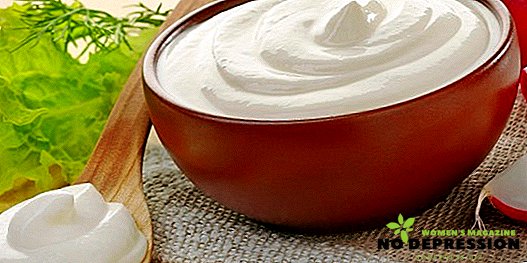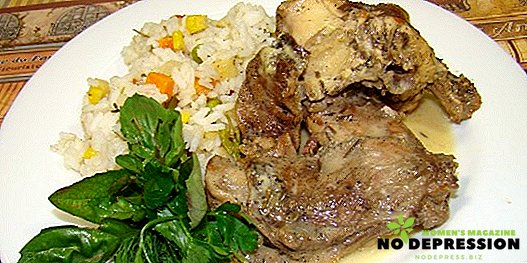Pulses are vibrations of the vascular walls resulting from contractions of the heart muscles. Sometimes the heart begins to beat faster than usual, and this leads to an increase in heart rate.
This phenomenon is considered quite common among different categories of people. Often, improper treatment and delayed diagnosis cause irreparable harm to human health.
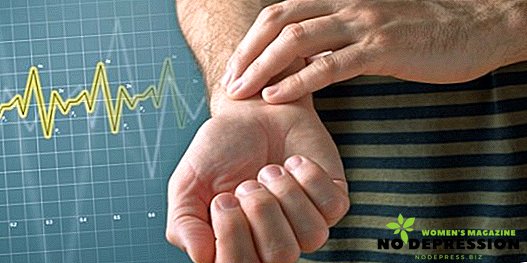
Pulse rate and its measurement
Pulse can tell us about the correct dynamics of the body and, of course, it has its own physiological values. On average, an adult is equal to 60 to 90 beats per minute, in children it is a little more.
Deviations are pulse shocks from 100 beats per minute and higher. But do not forget that the pulse rate depends on many external factors and methods of measurement.
Pulse measurement is usually done in two ways:
- The first method is the most common and is considered very simple. It is worth only four fingers, in addition to the big one, attach it with a slight pressure to the radial region of the artery near the wrist. Then begin to probe the tremors of blood.

- The second method is not less easy to use. It consists in using an electronic meter - a heart rate monitor. Its use is clearly described in the instructions enclosed with the device. This device will suit every person.
Preference should be given to the second method, since it will be able to measure the pulse in emergency situations much faster, its readings are considered more accurate.
Pulse should be measured within one minute, not exceeding this time, and preferably in the morning time on an empty stomach. Before that, it is not recommended to drink caffeine-containing beverages, eat, smoke, overexcite the body.
It is worth remembering a few conditions when measuring the pulse:
- in the supine position, the pulse is always lower, because the body is very relaxed;
- in the evening, the pulse is always more intense, since the body is already a little depleted by physical work.
The factors affecting the contraction of the heart muscles include: body loads, psychological state, correct diet, the presence of bad habits, long-term medication, drug addiction.
Heart rate in infants is always above the average of 100-120 beats per minute, and this is considered normal. In women, the heart beats a little more than in men.
High pressure and high pulse: causes
If high blood pressure is accompanied by a high pulse, this is a cause for excitement, since the reasons for this can be very serious and lead to disastrous consequences.
High pulse at elevated pressure indicates the presence of such diseases as:
- oncology of any body;
- diseases occurring in the respiratory system;
- arrhythmia or heart valve disease;
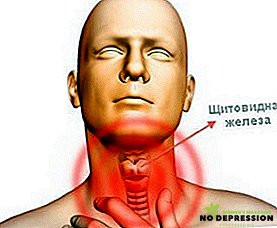
- anemia;
- failure of the thyroid gland.
Rapid pulse at high pressure in the above cases requires competent examination and treatment under the supervision of a highly qualified specialist.
But an increased pulse at high pressure can also be caused by external causes other than pathology, such as:
- constant lack of sleep;
- strong physical and mental stress;
- constant stress;
- abuse of alcohol, cigarettes, junk food, drugs.
The fact that with increasing pressure increases and the pulse rate is quite understandable. After all, the heart at this moment has to work much more intensively. There is no definite relationship between pressure and pulse, but it’s still not worthwhile to delay with this negative phenomenon.
What is the danger of such a state?
Such a state, of course, represents a threat to the whole organism, and sometimes it is fraught with terrible consequences. Frequent pulse fluctuations with high blood pressure should cause you to worry, because too frequent contractions of the heart can cause oxygen starvation of the body.
In some cases, you may experience:
- bouts of lack of air;

- gastrointestinal disorders;
- stroke;
- arrhythmic shock.
Also, with a prolonged or constant increase in heart rate, the performance of any person is significantly reduced. He becomes irritable, feels weak and complains of feeling unwell.
It is important to know that the cardiac muscles in conditions of constant overload need more oxygen, which naturally leads to its overspending.
Nutritional deficiencies begin in the capillaries, and cardiopathy begins to develop.
When and how can you help yourself
So, you found yourself having a high pulse at high pressure - what to do? Of course, it is impossible to self-medicate with this ailment. In this case, you need the correct treatment and accurate diagnosis. But it has already been said above that this violation is not always accompanied by pathology, and sometimes it is functional.
With functional deviations, you can help yourself. First of all, it is necessary to eliminate the pathogen itself, which raised your pressure and pulse. Rest, sleep, arrange a diet day.
 Soothing droplets - motherwort, valerian and peony tincture can be a good helper here. You can massage your neck or ventilate the room so that you get as much fresh air as possible. It is necessary to exclude smoking, alcohol and caffeine.
Soothing droplets - motherwort, valerian and peony tincture can be a good helper here. You can massage your neck or ventilate the room so that you get as much fresh air as possible. It is necessary to exclude smoking, alcohol and caffeine.
It is also necessary to reduce blood pressure, reduce its performance better drugs (moxonidine, captopril).
If you do not feel better, then by all means call the ambulance brigade. This will be the only correct solution. But while you are waiting for the help of specialists it is necessary:
- calm down and drink some water;
- it is worth breathing deeply, sometimes it is recommended to provoke a cough on the exhale;
- massage the neck in the area of the carotid arteries;
- sometimes it is necessary to induce a gag reflex through irritation of the root of the tongue using fingers
- can slightly overwhelm the eyeballs.
High pulse at normal pressure: why is this happening, what to do?
 Many people believe that under normal pressure there can be no increase in pulse oscillations. This opinion, of course, is erroneous.
Many people believe that under normal pressure there can be no increase in pulse oscillations. This opinion, of course, is erroneous.
Increased heart rate may well be when the pressure is normal. Undoubtedly, this happens much less frequently than with high blood pressure.
In science, this phenomenon is called tachycardia, which has two forms: physiological and pathological. Any of these types may be accompanied by weakness, darkening of the eyes, ringing in the ears, and strong perspiration (with cold sweat).
The differences of these forms are as follows:
- Physiological. This form has a small time frame, about 20 minutes. This type of people are more exposed to stress, strong physical and mental stress on the body. As a rule, it is not necessary to treat it. It is enough to exclude the effects of harmful factors causing this disease. The pulse varies from 100 to 160 beats per minute, but quickly returns to normal.
- Pathological. It is longer in time. Its occurrence is not due to any environmental factors. May cause heart disease, intoxication in the body, purulent infections. Requires complex treatment, prescribed by a highly qualified specialist, and a thorough routine examination.
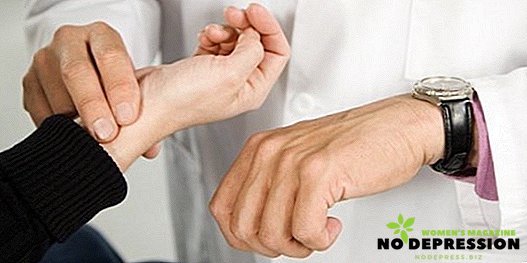
Why it happens:
- one of the reasons may be the manifestation, thus, of the symptoms of a disease progressing in the body;
- due to increased body temperature;
- a side effect from taking medications can be a consequence;
- prolonged stay in a closed or stuffy room;
- increasing the amount of hormones in the body;
- taking drugs, alcohol and tobacco products;
- strong mental load;
- excessive consumption of fatty foods.

With an increase in heart rate, when the pressure is within the normal range, it is necessary to immediately contact a medical institution. Tachycardia can occur in a person at any age. After all, an attack of this disease can lead to cardiac arrest and even death.
Moreover, now it is not difficult to measure these figures, for this there are electronic devices that produce a very small error.
And the most important thing in treatment is timely referral to a specialist and detailed diagnosis. Compliance with all recommendations will eliminate the occurrence of complications and will keep the disease under control. Do not neglect your well-being and be healthy!
For more information about increased heart rate, see the next video.













